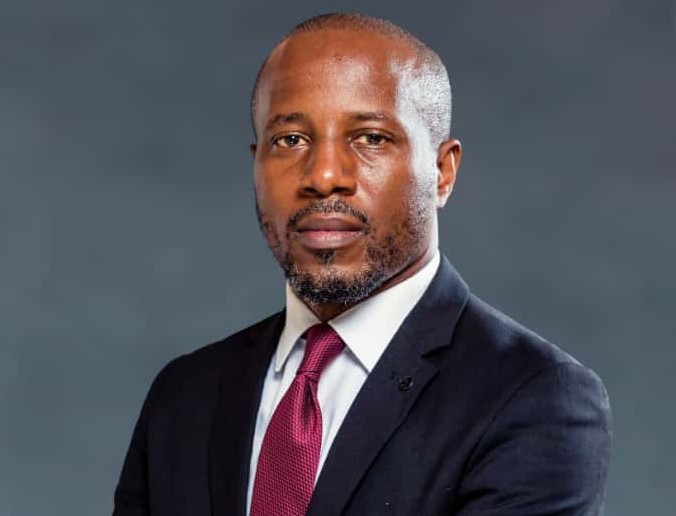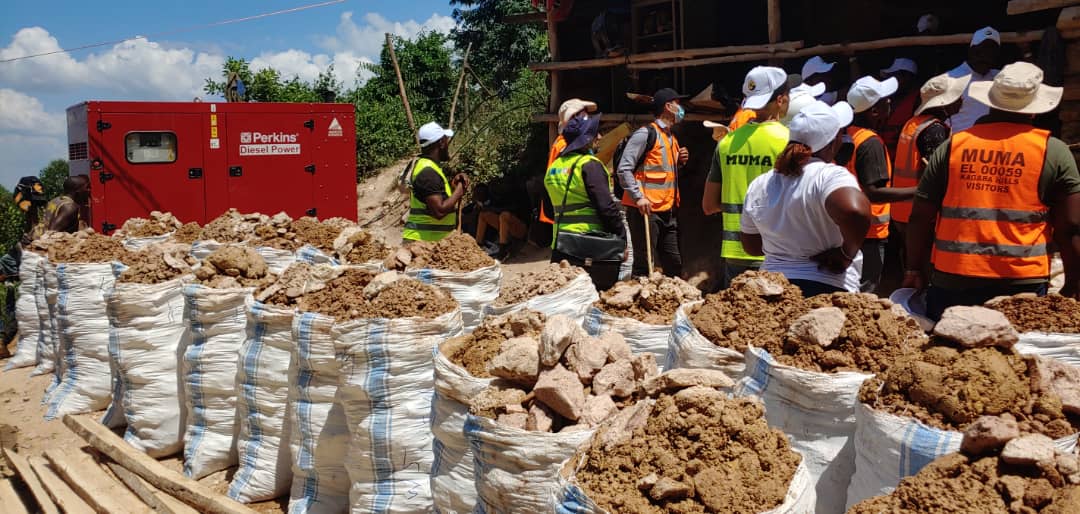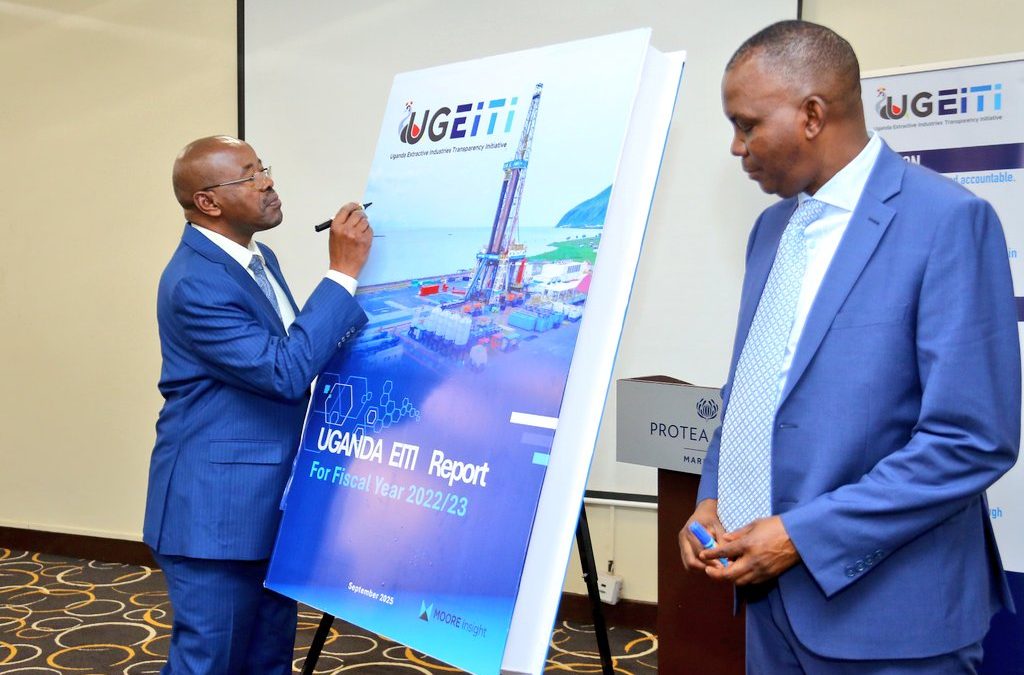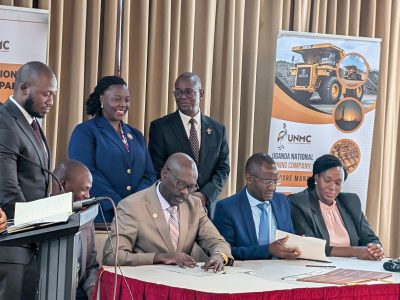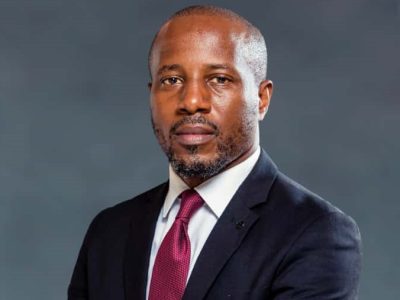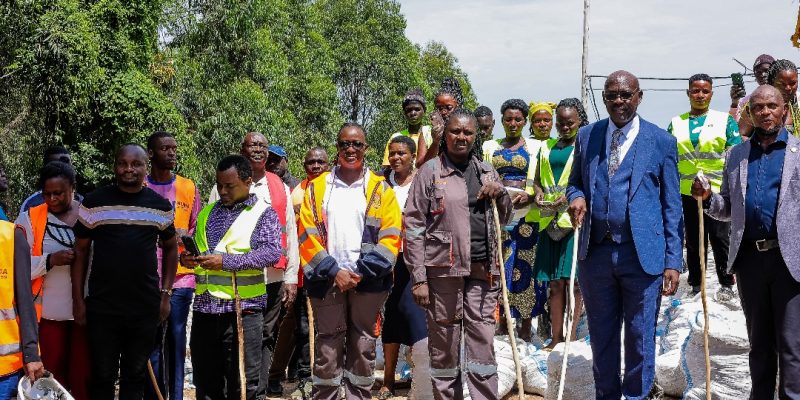
John Bosco Bukya, the chairman of the Mubende United Miners Assembly (MUMA), says the acquisition of a small-scale mining license marks the start of great things for Uganda’s miners – not only in Kassanda District, where the license is operational, but countrywide.
Bukya, who also doubles as the chairman of the Uganda Association of Artisanal and Small-Scale Miners Limited (UGAASM), was speaking at an event last week in Bukuya Town Council, Kassanda, to celebrate the acquisition of SML 00575, which the Ministry of Energy and Mineral Development granted MUMA on June 25, 2025.
The five-year license enables MUMA to undertake small-scale gold mining operations in Bukuya, Kassanda, over an area of 100.8 hectares.
“I want to thank the government, especially the ministry for formally recognizing ASMs in the new mining law after addressing many of our concerns. I have news for those detractors who have always dismissed artisanal miners – this license is just the start of many good things to come,” Bukya said.
He took time to reflect on the uncertain times when security forces evicted artisanal miners in Kassanda on August 4, 2017, as the government sought to formalize their operations.
“That incident – though harrowing – was a blessing in disguise, as it forced us to think big. Today we stand strong as MUMA, legally recognized by the state,” Bukya noted.
Emmanuel Kibirige, the MUMA general secretary, noted that the assembly had initially emerged as a pressure group through which artisanal miners sought to regain access to their livelihoods.
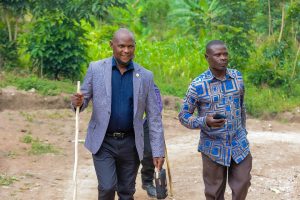
Kibirige (L)
With the help of civil society organizations (CSOs), the miners came together to collectively address the government’s concerns that had led to their eviction, including illegal mining without paying taxes, employing child labour, hiring foreign nationals in a trade ring-fenced for locals, and the careless use of dangerous chemicals and mercury – harming the environment in the process.
After getting organized and more vocal, the state issued the group 32 location licenses in 2019, allowing members to resume mining legally.
But with the repeal of the Mining Act, 2003, the location license was replaced by artisanal and small-scale mining licenses under the new Mining and Minerals Act, 2022.
This, therefore, required MUMA to upgrade its license status.
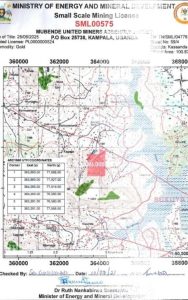
The license
Agnes Alaba, the Commissioner in the Department of Geological Survey and Mines (DGSM), who represented the Minister of Energy and Mineral Development, Ruth Nankabirwa, noted that being one of the core centers of gold deposits, it was significant that Kassanda and the Greater Mubende district received the first small-scale mining license in the central region and the fourth overall in the country since the new law was enacted.
So far, eight small-scale and one artisanal mining licenses have been issued, she said.
“Artisanal mining is the pathfinder to key mineral deposits, with most mining projects starting out as artisanal operations. Since the artisanal mining sub-sector employs over 60% of the workforce in mining in Uganda, it was important that we formalized and regulated it,” Alaba said.
The Kassanda event, she added, marked a crucial milestone in government efforts to formalize the sector and ensure that mining activities are carried out safely and in an environmentally-responsible manner.
“I want to congratulate MUMA for complying with all the legal, financial, and technical requirements that culminated in the issuance of this license. You are paving the way for many of your peers,” she said.
Crucially, formalization of the industry is expected to expand the government’s revenue base, with minerals currently among the sectors earmarked to anchor Uganda’s ambitious plan to expand the country’s economy from $50 billion to $500 billion by 2040.
“We have carried out geological studies in many areas to provide basic information to miners as we continue to promote best mining practices. Currently, we are undertaking biometric registration with 7,500 miners already registered – 2,400 of these from Kassanda,” Alaba said.
The government will continue to train and sensitize miners to ensure best practices are maintained, she said. A benchmarking trip for ASMs to Tanzania, sponsored by the government last year, is one such measure that will help transform mining in Uganda.
“The government, through my ministry, sponsored the miners’ trip because Tanzania is one of the most advanced countries in the management of artisanal mining. We believe our miners borrowed good ideas from there,” she added.
One such idea is a ‘minerals market’ that facilitates trade, similar to the one in Geita, Tanzania, Alaba said. The government is in the final stages of developing regulations to establish similar markets across the country, she added. Kassanda will also host a minerals market.
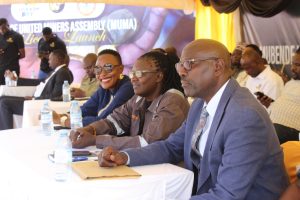
Namulindwa, Alaba and Bukya
Bank of Uganda Reserves
With the new license, MUMA can now participate in Bank of Uganda’s Domestic Gold Purchase Programme, which seeks to buy only locally mined gold from licensed miners to supplement the country’s foreign currency reserves while boosting the economy and the Uganda shilling.
“The mining license is one of the major requirements for miners to prequalify to sell gold to BoU. This MUMA mining license confirms that they are authorized to mine gold in a particular area in Uganda and can legally sell gold to the central bank,” said George Achanga, the Deputy Director, Financial Risk Management Division at BoU.
Buying local gold helps the central bank trace the source of the mineral, which is one of “the cardinal components of the BoU pilot gold purchase program,” he added.
The spike in revenues from gold exports in Uganda over the last five or so years has raised many questions about the origin of the product, with many observers pointing to the mineral-rich but conflict-ridden Democratic Republic of Congo (DRC) and South Sudan as the source.
A 2020 Uganda Extractive Industries Transparency Initiative (UGEITI) report noted a mismatch between gold exports and local production.
Local Growth
Supporting local Ugandan miners is a strategy already bearing dividends, with proceeds being reinvested in local economies.
New buildings and rising land and commodity prices characterize Bukuya Town Council, where a number of youth engage in mining. According to the area Member of Parliament (MP), Dr. Michael K. Bukenya, Bukuya is the fastest-growing town council in Uganda.
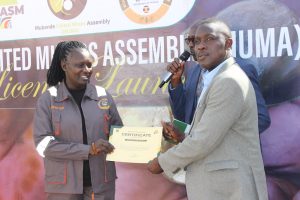
Alaba and Dr. Bukenya
Together with Phoebe Namulindwa, the Resident District Commissioner (RDC) of Kassanda district, the local leaders, however, want to see steady electricity supply – not only to support mining activities but also to match the town’s fast growth.
They also want the tarmacking of the road running from the Mityana-Mubende junction through the Kassanda district headquarters to the gold mining area of Bukuya fast-tracked.
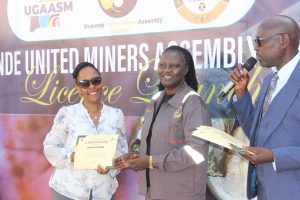
UGEITI head Gloria Mugambe, Alaba and Bukya. UGEITI was one of the partners recognized for supporting MUMA



